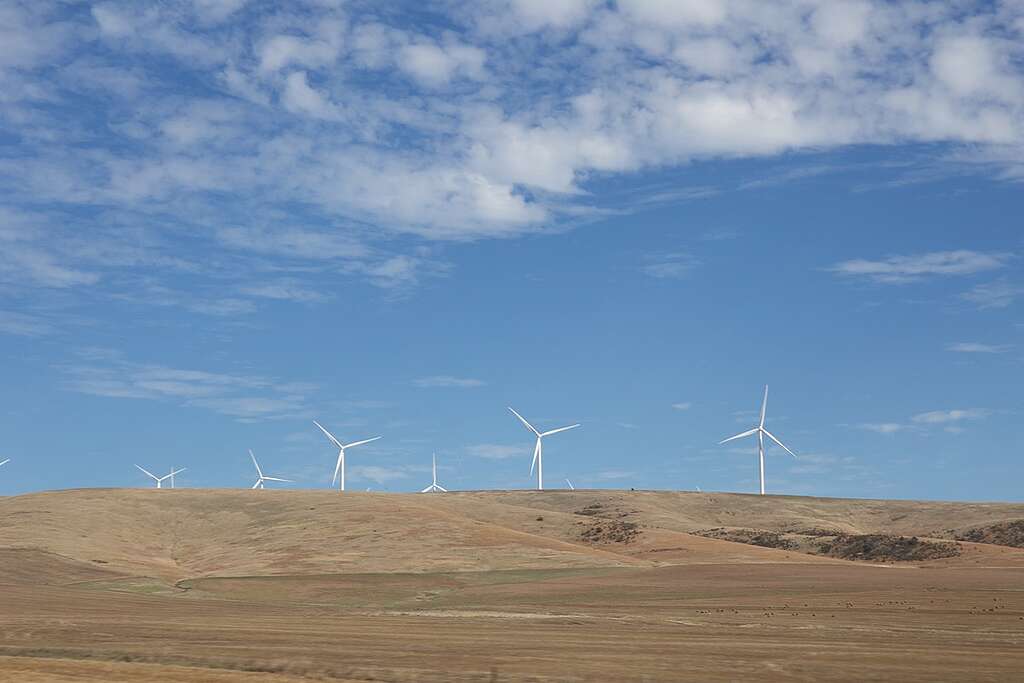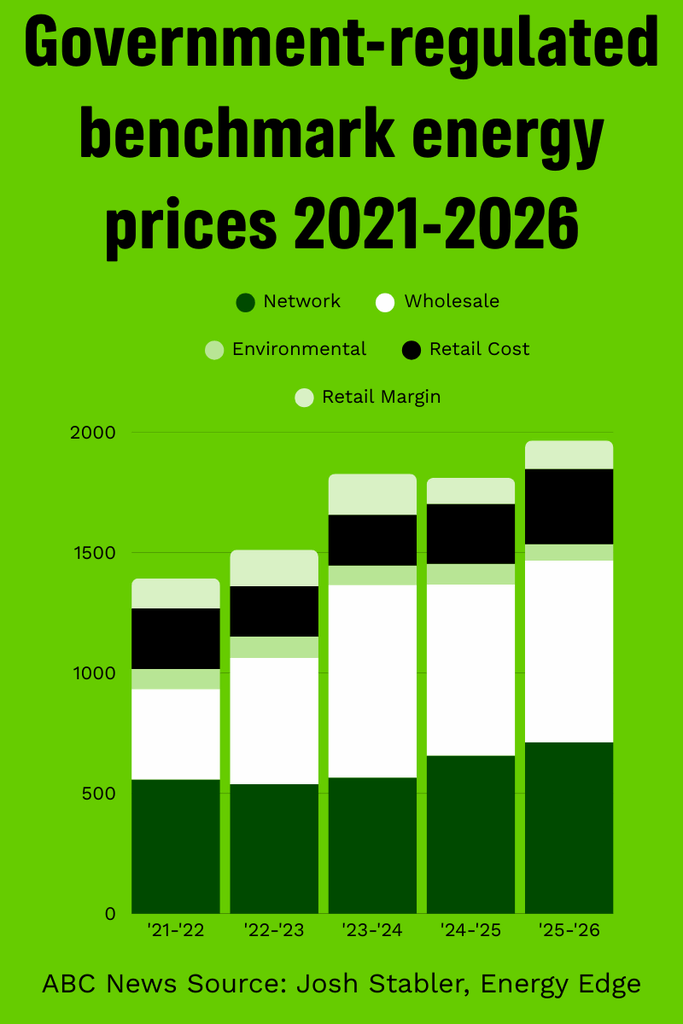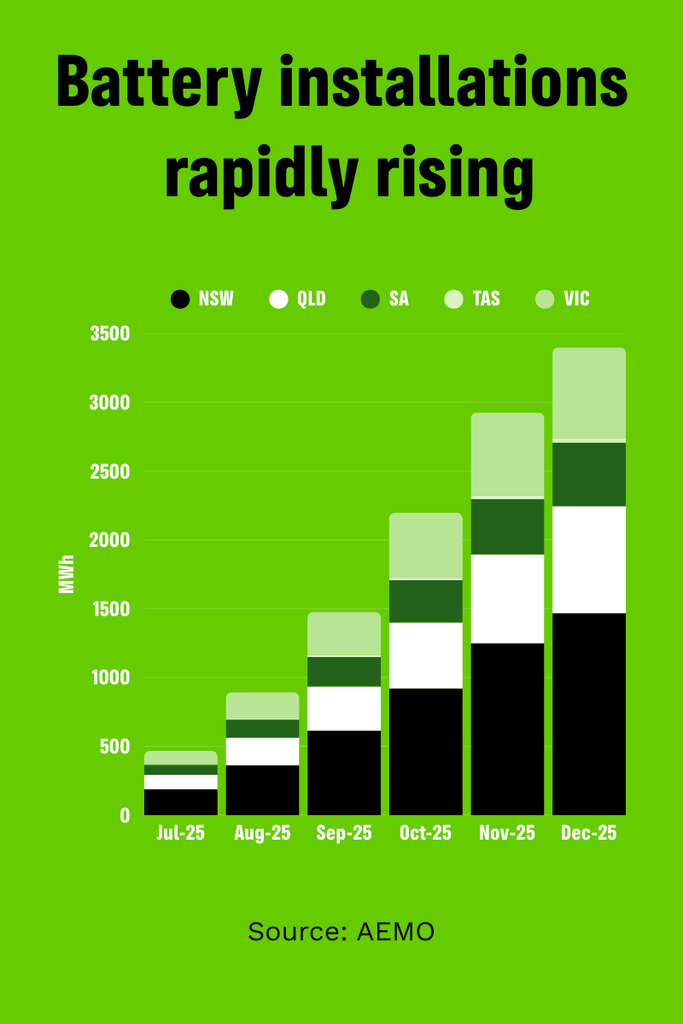A controversial auction of oil blocks in the Amazon by COP30 host Brazil drew bids on only 20% of the areas offered, a result that green campaigners have hailed as a partial victory as they prepare to challenge the bidding process in the courts.
Nine oil companies, led by a consortium between Petrobras and ExxonMobil, secured the rights to 34 exploration blocks – 19 of them in the Amazon basin – in last week’s auction in Rio de Janeiro, which put 172 onshore and offshore oil and gas blocks up for grabs and was hailed as a success by the energy minister.
The Amazon rainforest emerges as the new global oil frontier
Environmental and Indigenous rights campaigners led condemnation of the auction, saying it dealt a sharp blow to Brazil’s COP Presidency months before it hosts the next U.N. climate conference in the Amazon city of Belém. They say exploration in the sensitive area threatens fragile ecosystems and traditional communities, and undermines efforts to move away from fossil fuels.
Asked about such criticism, COP30’s Executive Director Ana Toni said reducing oil and gas production globally needed to happen in an orderly manner.“When we agreed that we should be transitioning away from fossil fuels, which is a global goal, we also said in an orderly, just and actable way,” she told the We Don’t Have Time platform in an interview during mid-year climate talks in Bonn.
‘Partial victory’ for climate fight
But some campaigners said the fact that most of the licences went unsold had brought them some solace. Juliano Bueno, technical director of the Arayara Institute, a Brazilian climate nonprofit, said in a statement the “weak market uptake” was a “partial victory” for climate campaigners and their actions against the auction.
“After intense mobilisation by civil society and five lawsuits, the auction was partially unsold,” Bueno said.
The Federal Prosecution Office (MPF) and the Oil Workers’ Unions had also called for the suspension of the auction, saying it represented a “serious contradiction” in Brazil’s climate commitments and inadequate environmental studies.
That came in spite of higher global oil prices due to conflict in the Middle East, which according to Nicole Oliveira, executive director at the Arayara Institute, would have generally “increased companies’ appetite to acquire blocks in the bid”.
She added that there had been no bids on blocks overlapping areas defined as directly affecting Indigenous lands or in the Potiguar Basin, where the marine-rich volcanic islands of Fernando de Noronha lie about 350 km (215 miles) off the coast.
Both the Potiguar Basin and the Foz do Amazonas basin are part of the Equatorial Margin, which stretches as far as Guyana and is seen as Brazil’s most promising frontier for oil exploration. Brazil wants to produce 20% more oil and gas by 2030.
Chevron, ExxonMobil and China’s state-owned CNPC, which snapped up offshore blocks in the auction, may have been encouraged by recent signs that Brazil’s state-run energy firm Petrobras might be getting closer to receiving environmental permission to drill in Foz do Amazonas.
‘No legal basis’
Brazilian climate campaigners say the government rushed to carry out the auction using environmental permits granted under former President Jair Bolsonaro that were due to expire on June 18 – just a day after the bidding – and which they say are incomplete.
The Arayara Institute said the bidding process can only be completed when the winning companies have presented several rounds of documents and signed concession contracts, which is expected to happen in November – when COP30 takes place. That timeframe would mean the deadline had been broken.
“Those contracts will have no legal basis whatsoever,” Oliveira said. “We’ll continue to challenge this process in court to ensure that the sale of these blocks is cancelled.”
Cláudio Ângelo, international policy coordinator at Observatório do Clima, a Brazilian environmental network, told Climate Home News an oil spill from offshore blocks near Belém and the Amazon River would devastate coral reefs, mangroves and the coastlines of both Brazil and neighbouring French Guiana.
UN expects climate finance roadmap to offer “clear next steps”
Patricia Baran, head of Brazil’s ANP oil regulator, said after the auction that the blocks acquired for exploration would have additional environmental and social protections.
But campaigners dispute that, and much of their criticism over the auction has accused the government of double standards in efforts to shift away from fossil fuels.
Ângelo called the auction a “double act of sabotage” – endangering the environment and undermining Brazil’s COP30’s leadership and the efforts of its diplomats to foster a just transition.
According to research by Oil Change International (OIC), Brazil ranks higher than Saudi Arabia in projected CO2 emissions from oil and gas expansion to 2035, though four Global North countries – mainly the United States – are driving the expansion.
Toni said it was not fair to put all the blame for increasing oil demand on producers like Brazil.
“Obviously countries producing oil have a lot of responsibilities… but consumer countries also have a lot of responsibilities,” Toni said.
The post Brazilian activists vow to fight Amazon oil auction in court, hail ‘partial victory’ over unsold blocks appeared first on Climate Home News.
Climate Change
Pacific nations would be paid only thousands for deep sea mining, while mining companies set to make billions, new research reveals
SYDNEY/FIJI, Thursday 26 February 2026 — New independent research commissioned by Greenpeace International has revealed that Pacific Island states would receive mere thousands of dollars in payment from deep sea mining per year, placing the region as one of the most affected but worst-off beneficiaries in the world.
The research by legal professor Dr Harvey Mpoto Bombaka and development economist Dr Ben Tippet reveals that mechanisms proposed by the International Seabed Authority (ISA) for sharing any future revenues from deep sea mining would leave developing nations with meagre, token payments. Pacific Island nations would receive only USD $46,000 per year in the short term, then USD $241,000 per year in the medium term, averaging out to barely USD $382,000 per year for 28 years – an entire annual income for a nation that is less than some individual CEOs’ salaries. Mining companies would rake in over USD $13.5 billion per year, taking up to 98% of the revenues.
The analysis shows that under a scenario where six deep sea mining sites begin operating in the early 2030s, the revenues that states would actually receive are extraordinarily small. This is in contrast to the clear mandate of the United Nations Convention on the Law of the Sea (UNCLOS), which requires mining to be carried out for the benefit of humankind as a whole.[1] The real beneficiaries, the research shows, would be, yet again, a handful of corporations in the Global North.
Head of Pacific at Greenpeace Australia Pacific Shiva Gounden, said:
“What the Pacific is being promised amounts to little more than scraps. The people of the Pacific would sacrifice the most and receive the least if deep sea mining goes ahead. We are being asked to trade in our spiritual and cultural connection to our oceans, and risk our livelihoods and food sources, for almost nothing in return.
“The deep sea mining industry has manipulated the Pacific and has lied to our people for too long, promising prosperity and jobs that simply do not exist. The wealthy CEOs and deep sea mining companies will pocket the cash while the people of the Pacific see no material benefits. The Pacific will not benefit from deep sea mining, and our sacrifice is too big to allow it to go ahead. The Pacific Ocean is not a commodity, and it is not for sale.”
Using proposals submitted by the ISA’s Finance Committee between 2022 and 2025, the returns to states barely register in national accounts. After administrative costs, institutional expenses, and compensation funds are deducted, little, if anything, remains to distribute [3].
Author Dr Harvey Mpoto Bombaka of the Centro Universitário de Brasília said:
“What’s described as global benefit-sharing based on equity and intergenerational justice increasingly looks like a framework for managing scarcity that would deliver almost no real benefits to anyone other than the deep sea mining industry. The structural limitations of the proposed mechanism would offer little more than symbolic returns to the rest of the world, particularly developing countries lacking technological and financial capacity.”
The ISA will meet in March for its first session of the year. Currently, 40 countries back a moratorium or precautionary pause on deep sea mining.
Gounden added: “The deep sea belongs to all humankind, and our people take great pride in being the custodians of our Pacific Ocean. Protecting this with everything we have is not only fair and responsible but what we see as our ancestral duty. The only equitable path is to leave the minerals where they are and stop deep sea mining before it starts.
“The decision on the future of the ocean must be a process that centres the rights and voices of Pacific communities as the traditional custodians. Clearly, deep sea mining will not benefit the Pacific, and the only sensible way forward is a moratorium.”
—ENDS—
Notes
[1] A key condition for governments to permit deep sea mining to start in the international seabed is that it ‘be carried out for the benefit of mankind as a whole’, particularly developing nations, according to international law (Article 136-140, 148, 150, and 160(2)(g), the UN Convention on the Law of the Sea).
For more information or to arrange an interview, please contact Kimberley Bernard on +61407 581 404 or kbernard@greenpeace.org
Climate Change
North Carolina Regulators Nix $1.2 Billion Federal Proposal to Dredge Wilmington Harbor
U.S. Army Corps of Engineers failed to explain how it would mitigate environmental harms, including PFAS contamination.
The U.S. Army Corps of Engineers can’t dredge 28 miles of the Wilmington Harbor as planned, after North Carolina environmental regulators determined the billion-dollar proposal would be inconsistent with the state’s coastal management policies.
North Carolina Regulators Nix $1.2 Billion Federal Proposal to Dredge Wilmington Harbor
Climate Change
Australia’s renewable energy opportunity
Australia has some of the largest areas of high volume, consistent solar and wind energy anywhere in the world. It is a natural advantage that many countries in our region and across Europe will envy as they ramp up their efforts to reduce carbon pollution.
Australia has an amazing opportunity to utilise this abundance of reliable energy not only to transform our own energy systems but also that of our neighbours – if we get the policy settings right.
We are, in fact, already seeing the benefits of renewable energy flowing into our electricity grids. With all the inflation pressures on our bank accounts it looks like electricity pricing may be one cost that could be turning a corner – largely thanks to cheap solar and wind energy.
Renewables are Bringing Down the Cost of Producing Electricity

Here at Greenpeace, while we think there are some important questions to ask about renewable energy, it is clear that solar and wind are certainly the cheapest energy options available.
In contrast, coal, oil and gas are not only big on pollution, they are also proving costlier as they struggle to cope with the changing nature of our electricity systems. Plus, fossil fuels are much more exposed to international price fluctuations – as we all experienced when our electricity bills rapidly rose following the Russian invasion of Ukraine.
Wouldn’t it be great if we instead had energy independence, sourced from an infinite supply of clean energy?
Solar and wind (backed by batteries) can do just that and the reality is that they are already out-competing the old guard of gas and coal simply because they are quicker and cheaper to deploy. Which is good news for electricity prices!
Although whether energy retailers are passing on those savings to customers is another question. Short answer: no, they’re not – but it is a bit complex.
Why are my electricity bills still high?
There are a number of elements that make up the final amount we see on our bills. The graph below shows the breakdown of energy costs covered by our bills.
You will see roughly a third (36.2% in 2025-26) of the cost goes to maintenance and build out of the electricity grid. This includes the transmission lines needed to connect to new renewable energy sites and to connect states so they can better share their energy resources. The ‘network’ costs have been increasing but so have other components of our bill, most notably the ‘wholesale’ cost of producing electricity.

Thankfully, the cost of producing the electricity is now starting to go down (thanks to renewables and batteries), but they are coming off record highs thanks to the exorbitant cost of gas and the unreliability of coal power stations that are old and no longer fit for purpose.
During high demand times (eg, when we all get home from work on a hot day and turn on the air conditioning) spot prices can quickly jump. Add to that a couple of coal power plants breaking down (as they increasingly do), and expensive gas fired power use spikes in the system. This can quickly cancel out any of the cost savings solar power may have created during the day when prices can actually go negative.
The good news is that this is exactly the problem batteries can solve. Batteries are great at soaking up the surplus supply of solar during the middle of the day, which creates a more efficient system, and then rapidly pumping out that power during the evening peak at a cheaper rate than gas.
How much have costs come down?
According to the Australian energy regulator (AEMO), wholesale electricity prices across the east coast have dropped by 44% when comparing prices in quarter 4 of 2025 to the same period in 2024.

AEMO directly attributes the change to the significant growth in wind (up 29%), solar (up 15%), and batteries (3,796 MW of new battery capacity added). This influx of cheap renewable energy has seen a corresponding decrease in the use of polluting fossil fuels to power the grid. Coal fired power dropped by 4.6% and gas fired power fell by a staggering 27%.
The same trend can be seen in the world’s largest standalone grid in WA where renewable energy and storage supplied a record 52.4% of the grid’s energy across the final 3 months of 2025. That is an impressive result given there is no interstate connection to borrow energy from and there is no hydroelectric power in the system.
As a result, WA has seen a 13% drop in wholesale electricity prices thanks to a 5.8% reduction in coal fired power and a 16.4% reduction in gas fired power.
Australian Households Lead the Way on Solar and Batteries
Despite all the attempts to discredit clean energy by Trump and other conservative politicians, Aussie households have long known the value of renewable energy. In fact, Australia now holds the title for the highest rate of solar energy per capita in the world.
This is now being followed by the rapid takeup of household batteries with the Clean Energy Regulator being overwhelmed with interest in the Cheaper Home Batteries Program. They now expect to receive “around 175,000 valid battery applications corresponding to a total usable capacity of 3.9 GWh by the end of 2025.”’

All these extra batteries storing the surplus solar energy across our neighbourhoods during the day is not only creating drastic bill reductions for those households who are installing them, it is helping the whole grid. Which eventually will help everyone’s electricity bills.
If Australia as a whole follows the lead of suburban families by switching to cheap solar (plus wind) backed-up by batteries, it has an unparalleled opportunity to build its economy on the back of unlimited, local, clean energy harnessed from the sun and wind.
Powering our Future Economy
If there was ever something Australia has a natural advantage in, its sun and wind. But given the growing demand for electricity from data centres and the electrification of heavy industry, we are going to need more than just rooftop solar panels.
That’s where Australia has the potential, more than almost any other country, to become a renewable energy powerhouse and punch above our weight in the fight against climate change. See for example the unique opportunity to enter into the production and export of green iron.
While there is still quite a way to go before our electricity is fully sourced from solar and wind, we are well on the way. The clean energy charge is gathering pace – and our communities, oceans, wildlife and bank balances will be the better for it.
-
Greenhouse Gases7 months ago
Guest post: Why China is still building new coal – and when it might stop
-
Climate Change7 months ago
Guest post: Why China is still building new coal – and when it might stop
-

 Greenhouse Gases2 years ago
Greenhouse Gases2 years ago嘉宾来稿:满足中国增长的用电需求 光伏加储能“比新建煤电更实惠”
-
Climate Change2 years ago
Bill Discounting Climate Change in Florida’s Energy Policy Awaits DeSantis’ Approval
-
Climate Change2 years ago
Spanish-language misinformation on renewable energy spreads online, report shows
-

 Climate Change2 years ago
Climate Change2 years ago嘉宾来稿:满足中国增长的用电需求 光伏加储能“比新建煤电更实惠”
-
Climate Change Videos2 years ago
The toxic gas flares fuelling Nigeria’s climate change – BBC News
-

 Carbon Footprint2 years ago
Carbon Footprint2 years agoUS SEC’s Climate Disclosure Rules Spur Renewed Interest in Carbon Credits



